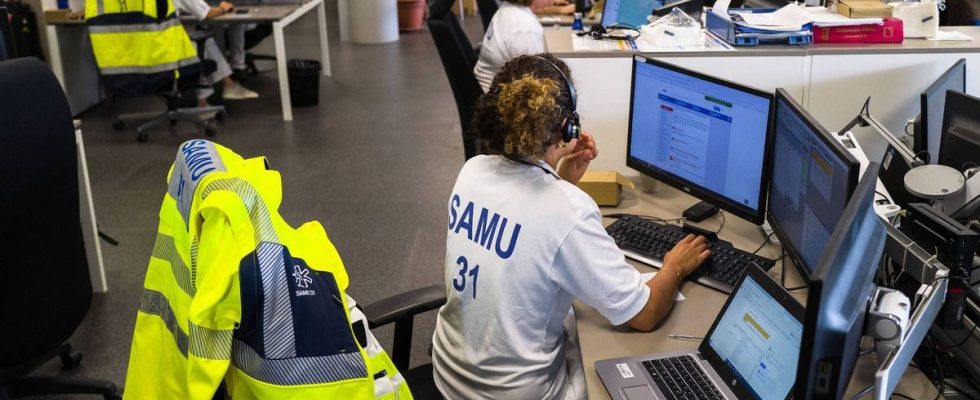Published on
Updated
Reading 2 mins.
in collaboration with
Christophe Prudhomme (emergency physician)
Responsible for responding to calls made to 15, the Samu emergency number, the medical regulation assistants have just announced their strike action. If the service remains assured, these professionals face an increase in activity and demand wage increases and hiring. The explanations of Christophe Prudhomme, emergency physician and spokesperson for the Association of Emergency Physicians of France (AMUF).
When you dial 15, the medical regulation assistants (AMR) ask you the first questions, to understand the emergency and if necessary, make the call to a doctor and trigger the intervention of a medical team.
Although on strike over three quarters of French territory, they are assigned to their posts and work “normally, without loss of pay” And “without consequences on the time and quality of response for the French” explains Yann Rouet, co-president of Afarm (French Association of Medical Regulation Assistants) to our colleagues from 20 minutes.
Health professionals “exhausted” by their missions
“Dispatch assistants were previously hired and trained on the job, whenever there was a moment“Explains first of all Christophe Prudhomme, emergency physician and spokesperson for the AMUF, the Association of Emergency Physicians of France.
“Now, things have improved a little, they are recruited after a professional training, which lasts one year and are considered as nursing staff, classified in category B of the public service.“Despite this progress, the AMRs remain insufficient in number: they are asking for around 800 additional recruitments, in order to be able to properly regulate the number of incoming calls. The agents are also demanding salary increases.
No more calls around 15 and not enough respondents
“There are more incoming lines around 15, and therefore more calls, in particular with the recommendations of the previous Minister of Health, François Braun, to call instead of going to the emergency room. The ideal goal is to pick up within 30 seconds after the call, but due to lack of staff this can take up to 10 minutes! And there, everything depends on the subject of the call: if it’s the flu, it’s not serious; if it is a cardiac arrest, it is no longer a doctor to save the patient that must be sent but rather to sign a death certificate” deplores the emergency doctor, who recalls that being regularly confronted with this type of situation can affect the morale of ARMs.
Disaffection for the profession and an additional workload
In addition to this responsibility, the working conditions are also difficult. “An ARM is typically the person who works when all the others are off: at night, on public holidays, weekends… If this is not properly remunerated and valued, it is not tenable. Because of this, people do not stay long in their jobs and quit. Result: this additional pressure is transferred to those who remain” adds the doctor.
In addition, this summer, the activity would have been “30% higher, especially in tourist areas“, according to Yann Rouet. And when the human resources do not follow, it upsets the whole chain of care management. “No matter how well we organize the transfers, the delay in care cannot be made up for. And the epidemiological data show it: for a patient who is not hospitalized immediately in intensive care when it should be, there is for him a risk of excess mortality of 30%” concludes Christophe Prudhomme.
